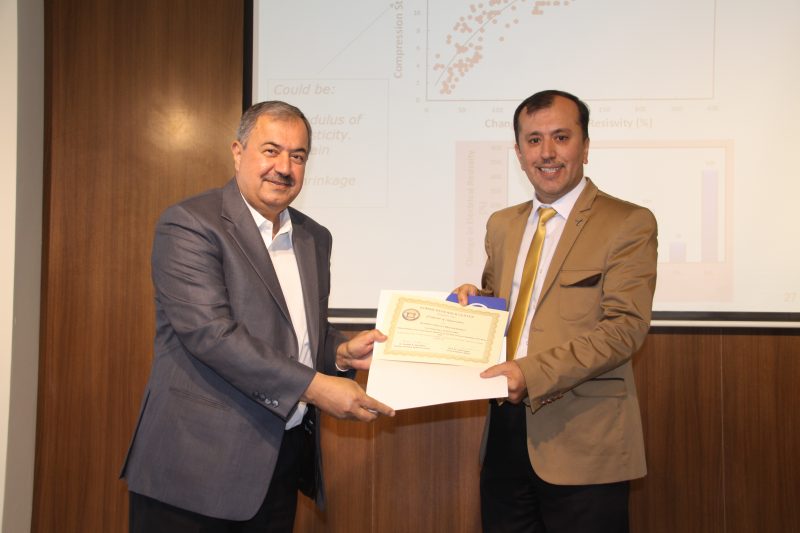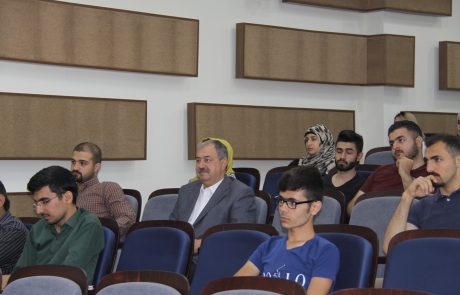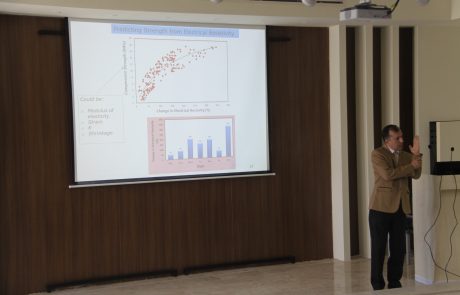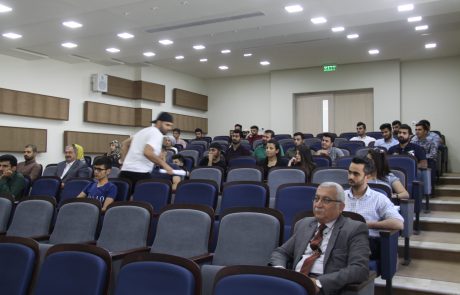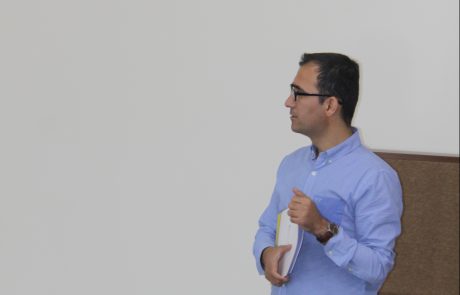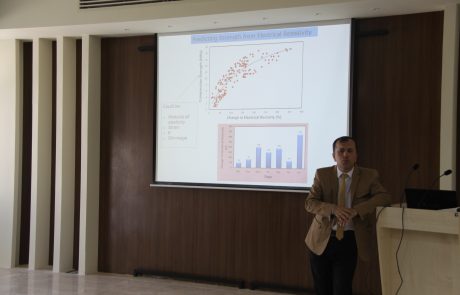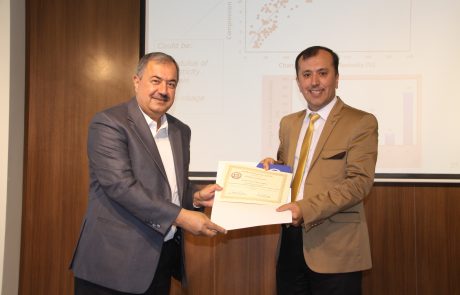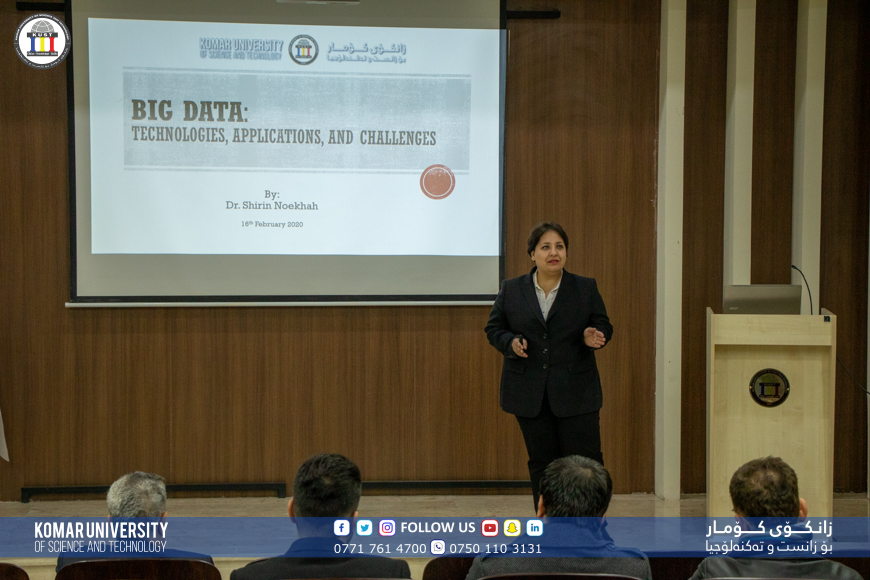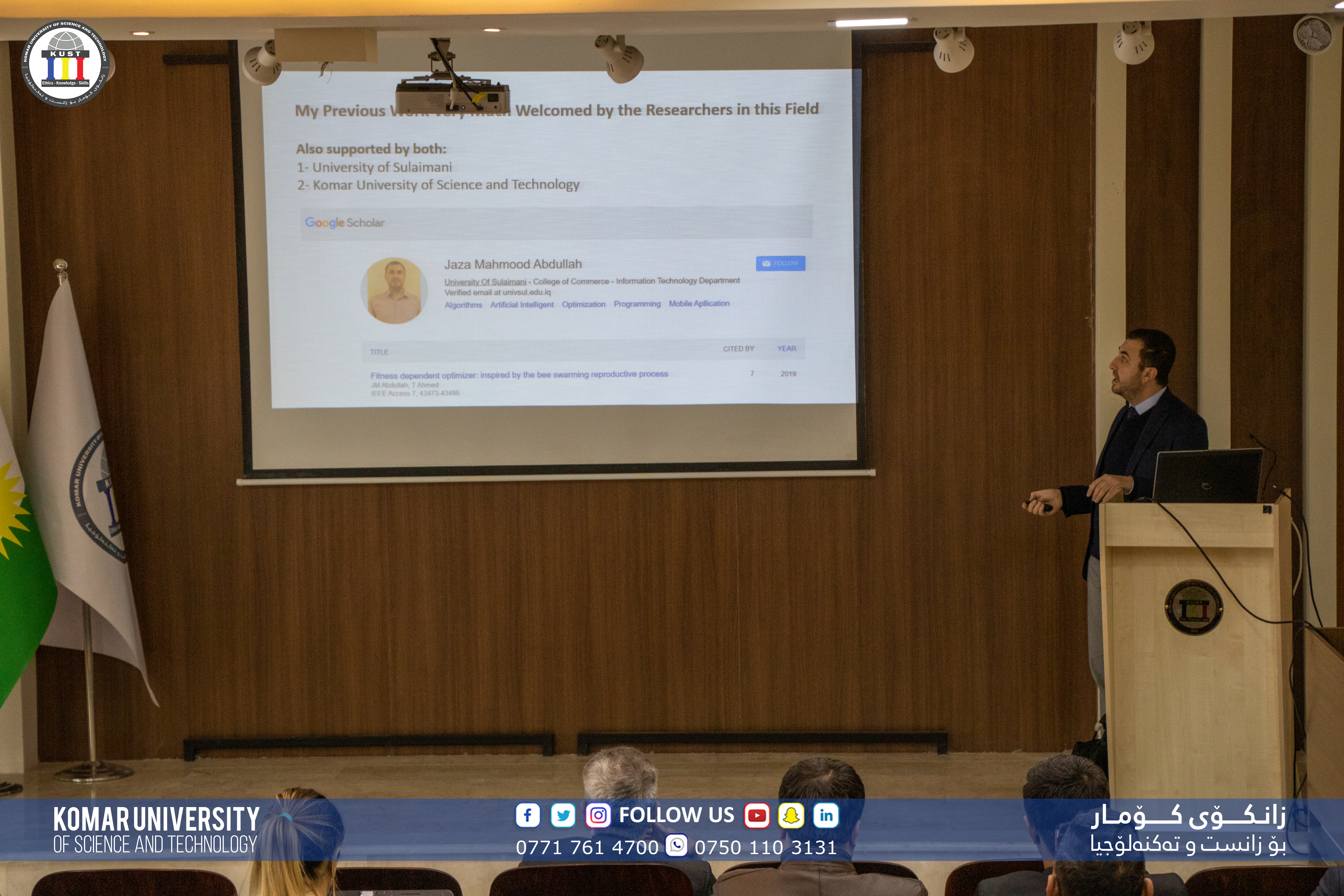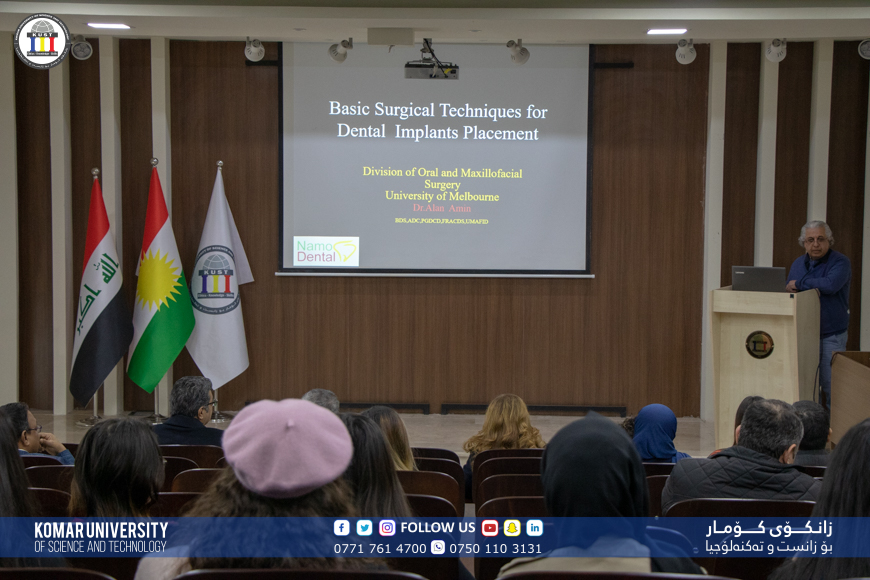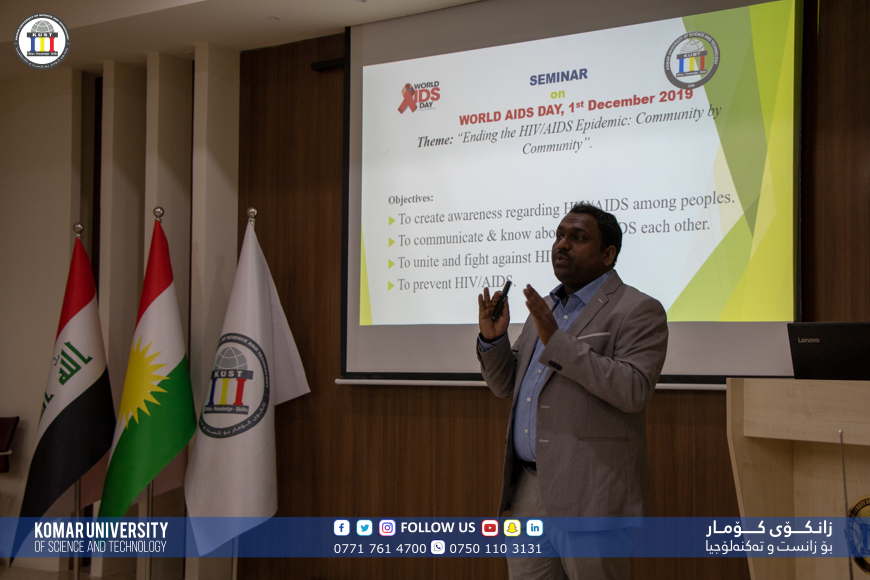On Wednesday, May 17th, 2017, Komar Research Center organized a seminar for Dr. Ahmed Salih from University of Sulaimani and University of Houston, Texas. His seminar focused on smart cement and its applications.
Smart cement was modified with iron oxide nanoparticle to have better sensing properties so that the behavior can be monitored at various stages of construction and during the service life of wells. A series of experiments evaluated the piezoresistive smart cement behavior with and without Nano Iron in order to identify the most reliable sensing properties that can also be relatively easily monitored.
Tests were performed on the smart cement from the time of mixing to hardened state behavior. When oil well cement was modified with conductive filler (CF), the piezoresistive behavior of the hardened smart cement was substantially improved without affecting the setting properties of the cement. During the initial setting, the electrical resistivity changed with time-based on the amount of Nano Iron used to modify the smart oil well cement.
He and his colleagues have developed a new quantification concept to characterize the smart cement curing based on electrical resistivity changes in the first 24 hours of curing. An addition of more Nano Iron increased the compressive strength of the smart cement by 26% and 40% after a day and 28 days of curing respectively. A nonlinear curing model was used to predict the changes in electrical resistivity with curing time.
The piezoresistivity of smart cement with Nano Iron was over 750 times higher than the unmodified cement depending on the curing time and nanoparticles content. Also, the nonlinear stress-strain and stress change in resistivity relationships predicted the experimental results very well.
The seminar followed a question and answer session, attendees of the seminar asked questions about the feasibility and cost of the smart cement and its use in Kurdistan Region. At the end of the seminar, Dr. Salah Aziz, President of Komar University, has awarded the certificate of appreciation to Dr. Ahmed from Komar Research Center.
